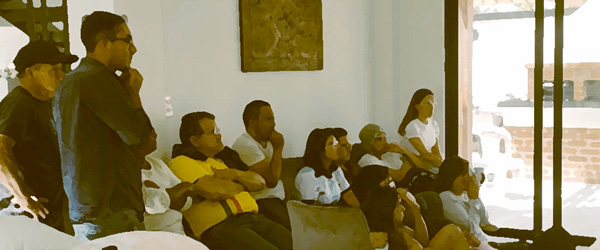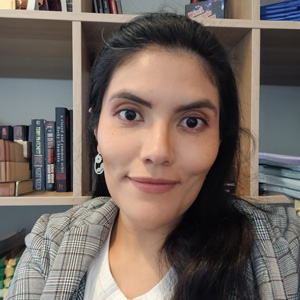When health experts post on social media. A reflection
A couple of months ago, I came across a screenshot on Instagram of an English-language article about the opening of the first supervised drug consumption centre in Scotland. What caught my attention wasn’t the news itself, but how I found it. It was not through the newspaper’s official account or a public health announcement, but on the feed of a colleague: a highly respected clinical doctor.
In his post, he shared only the screenshot of the article headline, adding an outraged comment along the lines of: ‘So now we’re going to normalise drug use…’ Nothing unusual there; it’s common to see sensational headlines online, shared in anger. But what surprised me was who shared it and how.
This colleague, whom I have known since starting my health career, is now a highly respected physician, with a decently large social media following that includes people of diverse educational backgrounds, patients, students and other healthcare professionals. His account is public, and he presents it as a space to ‘educate people’ and ‘promote his services.’ Yet his post had no link to the article, no context, no evidence.
As a health professional myself, that caught my eye. I looked up the original article, reviewed the policy that led to the centre’s opening and even checked the supporting studies. I knew this person for years and knew the quality of his work, so I presumed his opinion had to have a reason. Later, when I asked him directly the ‘why’ of the statement, he replied: ‘It’s my opinion. I skimmed the article; it’s nonsense.’ I didn’t want to argue, but I asked him: ‘How many people do you think said the same thing when contraception was first discussed?’
I still haven’t received an answer.
This experience left me wondering: how many of his followers fact-checked that post? And how many simply assumed that if an expert said it, it must be true? To what extent are health professionals responsible for how we express our opinions in public?

Doctors on social media: A new normal
If you ask me whether health professionals should avoid social media or avoid having strong personal opinions, the answer is no. We’re human, we come from different religions, educations and cultures, so our sense of ‘right and wrong’ can vary. The problem is forgetting that, for an audience that sees us as experts, our opinion often reads as evidence. When a health professional posts in spaces framed as educational, they’re not just speaking as individuals; they’re speaking with the credibility society grants to their profession.
Research shows that people tend to believe false health information based on three main factors: the source (who presents the information), how reasonable the message sounds and the aesthetic quality of the content.1 In other words, if a recognised expert shares it, the audience is more likely to accept it.
That’s the trap: a post without evidence can become ‘truth’ simply because the person sharing it wears the ‘knows best’ label.
This isn’t an isolated phenomenon. Today, most doctors have a social media presence, with 70% of physicians in the US having at least one public profile, although nearly 90% do not post regularly.2,4,5 Global surveys show that over 65% of doctors use social media for professional purposes, on top of personal use7,8.
During the pandemic, that presence exploded. Many doctors went from being anonymous voices to public figures on Twitter, TikTok or YouTube, mostly trying to fight misinformation; ‘Doctors became social media influencers… but not all of them were ready for it.’9
The ‘health expert’ online: A double-edged sword
Public perception matters, and while it seems to be the new norm for new health professionals or any experts really, an Australian national survey found that while most doctors use social media privately, only a minority feel comfortable using it professionally.7 About 65% worried about confidentiality or legal issues if they engaged too much online.6 Which is fair when we consider that many patients lose trust in evidence-based healthcare when they see unprofessional behaviour on social media.6 The dilemma is clear: how can we participate responsibly without putting either professional ethics or public trust at risk when social media is a double-edged sword?
On the one side, we have positive cases like the #ThisIsOurShot campaign during the pandemic, where thousands of health professionals coordinated to share clear, evidence-based information about vaccines and COVID-19 during a time of fear and confusion.8
On the other side, we have a variation in ‘experts-influencers.’ Some use TikTok or Instagram to educate, but others do so with scientific back-up, mixing personal opinions, superficial advice or sponsored products.9
Opinion ≠ Evidence
Based on all of this information, what can we do? In today’s world, it is clearly not rejecting social media or even censoring opinions. However, recognising that, as perceived experts, when we speak in spaces where we present ourselves as educators or professionals, we need to make it clear when we’re sharing scientific evidence, or when we’re simply offering a personal view. Because the impact of a post goes far beyond a ‘like.’
A single publication can shape how people view medicine, influence patient decisions, reinforce distrust in science and even worse, increase rejections to already heavily politicised topics and groups of people.
Knowledge Translation: From evidence to impact
In public health, we talk about Knowledge Translation (KT): how to bring scientific evidence into the everyday practice of patients, communities and policies. The metaphor often used is the flywheel:
‘By turning the flywheel, we can move evidence into practice, creating a self-reinforcing cycle of improved health outcomes. This accelerates the path from ‘Evidence to Impact.’’
Social media, used responsibly, can be that flywheel. It can accelerate the journey from evidence to real-world impact. But if used without rigour, it risks steering it toward misinformation.
How can we improve ourselves as health professionals if we are not social media experts or social media trained in a world where social media is the norm? Acknowledgement of our responsibility is the most important one and with that, just skimming some basic guidelines for doctors on social media around the world:
- If you are a clinician, hold the same standard as in your practice. If you wouldn’t say it in a consultation, don’t post it online.
- Differentiate opinion from evidence. Be explicit about when you’re speaking as a professional versus sharing a personal view.
- Cite reliable sources. If you share studies or news, include accessible links.
- Encourage questions. Avoid absolute statements that shut down discussion; instead, create space for critical dialogue.
- Train yourself. Include digital communication and social media ethics in your medical education.
Conclusion
In the end, what struck me most about my colleague’s post wasn’t the debate over whether Scotland was right or wrong to open a supervised consumption site. It was a reflection on how doctors use social media. That post didn’t share evidence; it shared a value judgment. And yet, because of who posted it, many probably took it as fact. That is power.
Social media isn’t the enemy. It’s a tool, and like any tool, it can build trust and educate, or it can reinforce prejudice and spread misinformation. It is up to us how we use it.
My invitation is this: as health professionals, let’s take on that role consciously, remember we are advocates. Let’s make our social media a space not to shut conversations, but to open them up with questions, data and evidence. Because with every click, every post, what’s at stake is the community's trust.
References
1. George, J. F. (2024). Discovering why people believe disinformation about healthcare. PLoS One, 19(3):e0300497. https://doi.org/10.1371/journal.pone.0300497
2. Van Ravenswaay, L., Parnes, A., & Nisly, S. A. (2024). Clicks for credit: An analysis of healthcare professionals’ social media use and potential for continuing professional development activities. Medical Education Online, 29(1):2316489. https://doi.org/10.1080/10872981.2024.2316489
3. Ventola, C. L. (2014). Social media and health care professionals: Benefits, risks and best practices. P & T: A Peer-Reviewed Journal for Formulary Management, 39(7):491–520. https://www.ptcommunity.com/journal/article/full/2014/7/491/social-media-and-health-care-professionals-benefits-risks-and-best
4. Chen, J., & Wang, Y. (2021). Social media use for health purposes: Systematic review. Journal of Medical Internet Research, 23(5):e17917. https://doi.org/10.2196/17917
5. Hameed, I., Oakley, C. T., Ahmed, A., Naeem, N., Robinson, N. B., Hameed, N. F., & Gaudino, M. (2021). Analysis of physician use of social media. JAMA Network Open, 4(7):e2118213. https://doi.org/10.1001/jamanetworkopen.2021.18213
6. Kilic, Y., Chauhan, D., Avery, P., Horwood, N., Nakov, R., Disney, B., & Segal, J. P. (2021). The public’s attitude towards doctors’ use of Twitter and perceived professionalism: An exploratory study. Clinical Medicine, 21(5):e475–e479. https://doi.org/10.7861/clinmed.2021-0357
7. Brown, J., Ryan, C., & Harris, A. (2014). How doctors view and use social media: A national survey. Journal of Medical Internet Research, 16(12):e267. https://doi.org/10.2196/jmir.3589
8. Céspedes, L., Fleerackers, A., & Maggio, L. A. (2024). ‘Giving them the best information I could with whatever I had at hand’: Physicians’ online health communication practices in a post-normal science context. Journal of Science Communication, 23(06):A04. https://doi.org/10.22323/2.23060204
9 .Hao, K. (2020, April 26). Doctors are now social media influencers. MIT Technology Review. https://www.technologyreview.com/2020/04/26/1000602/covid-coronavirus-doctors-tiktok-youtube-misinformation-pandemic/
To link to this article - DOI: https://doi.org/10.70253/JFKM1796
Links to Additional Resources
Disclaimer
The views expressed in this World EBHC Day Blog, as well as any errors or omissions, are the sole responsibility of the author and do not represent the views of the World EBHC Day Steering Committee, Official Partners or Sponsors; nor does it imply endorsement by the aforementioned parties.
